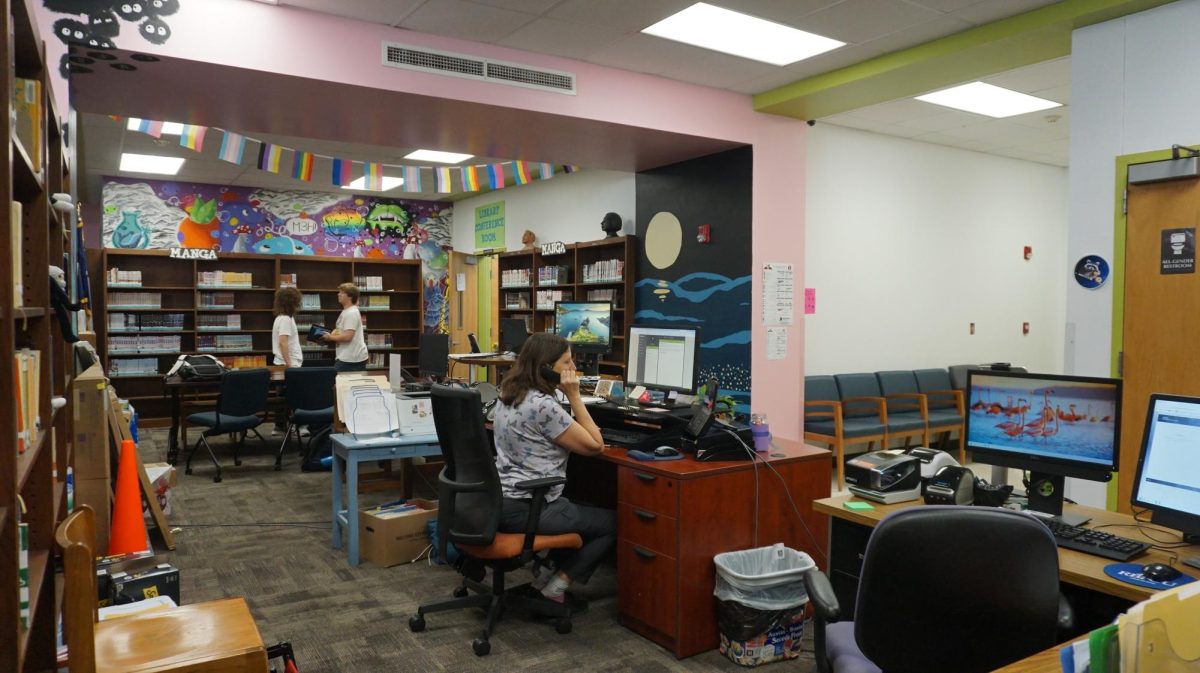Several of the nation’s biggest tech companies have made massive employee layoffs in the past couple of months. On Oct. 28, SpaceX and Tesla owner Elon Musk secured a deal to buy Twitter for $44 billion, and since the transaction occurred he has fired around half of the company’s staff. After Meta had a mass hiring during COVID-19, it recently made the announcement that it plans to let 11,000 people go, which is 13% of its workforce. It also announced that it will be enforcing a hiring freeze through the first quarter of 2023. The most recent major company to lay off employees is Amazon, who on Nov. 16 began laying off of about 10,000 workers. Other brands, including Microsoft, Snap and Spotify, also have been letting employees go from their jobs. In total, this year there have been more than 86,700 lost jobs in the tech industry.
Economics teacher Vaughn Stockton attributes the layoffs to huge hikes in federal interest rates. He noted that the number of layoffs only keeps increasing, and more companies like Doordash continue to be added to the long list.
“It seems like every week there’s a new announcement,” Stockton said.
Musk has also made a slew of function and policy changes to the platform. In November, he introduced paid verification in the form of ‘Twitter Blue.’ He repealed it within a week following several parody accounts taking advantage of the service then relaunched it a month later. Musk announced a new view count on tweets in December, and the terms of service have been updated in ways that loosen restrictions on COVID-19 misinformation and hate speech.
The drama surrounding Musk’s purchase of Twitter has been inflated all across the media, including on the platform itself. Several former employees have tweeted about their departure from the company after Musk offered his workers an ultimatum: to either step it up and work “extremely hardcore” or leave with three months’ severance pay.
The layoffs at Twitter have led not only to loss of jobs but also confusion among the workers. Melissa Ingle, a data scientist who worked with Twitter to find tweets that violate the company’s election misinformation regulations, recounted the situation in an interview with NPR.
“My boss was laid off, and my boss’s boss — the head of the department — quit,” Ingle said. “So I did not know who my boss was. I didn’t know what new assignment I had.”
Though these firings across the tech industry have occurred for different reasons — some due to change in leadership, some due to changes in the economy or unexpectedly low revenue — they all result in the same conclusion: thousands of workers trained in technological backgrounds have now been left without employment. As more and more tech companies lay off large portions of their workforce, institute hiring freezes, and remove employee benefits, workers’ options are becoming increasingly limited. Jake Schneider, who was let go in late October from the tech company Recharge, described the current job market in the San Francisco Chronicle.
“We’re the canary in the coal mine,” Schneider said. “Our main job is to fill roles and if there aren’t roles to fill, we aren’t needed.”
Stockton believes that the widespread job firings could be a sign of a larger economic slowdown that might decelerate the rapid growth of innovation that has occurred over the past few years. He also expressed his concerns that the layoffs may lead to negative impacts on consumers from the tech industry.
“What we really want to be wary of is going to be a lack of moderation,” Stockton said. “Just not as much controlling hate speech.”
The sudden decrease in staff for technology corporations also might mean something to new employees and other potential hirees trying to enter the field.
“If you’re someone graduating this year, looking for an internship or a job, maybe steer clear of these larger tech companies,” Stockton said. “Those jobs might not be safe moving forward.”








